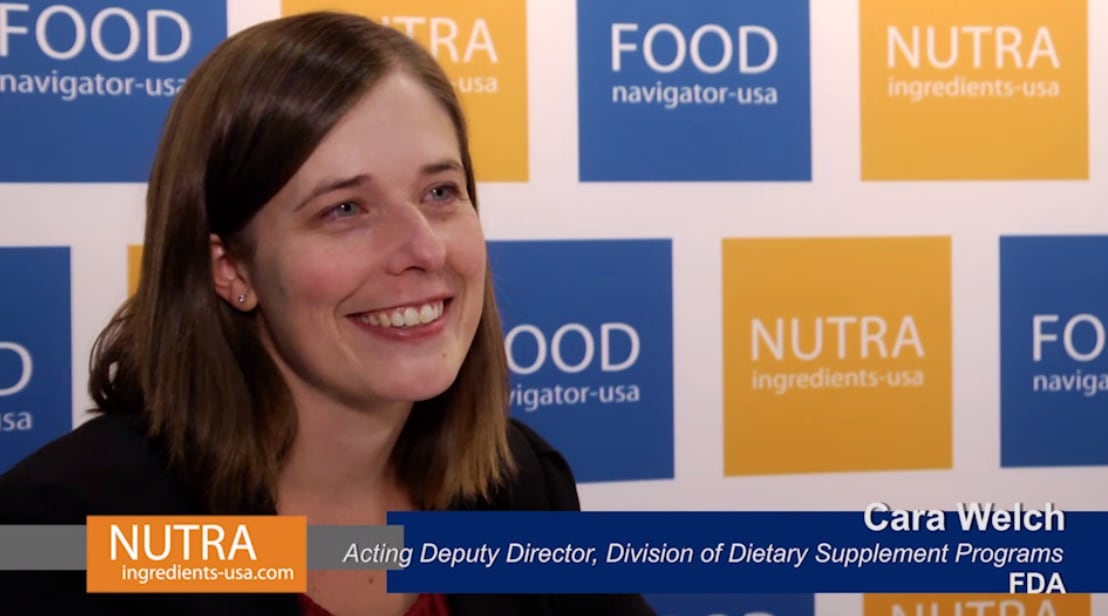Welch, the acting director of FDA’s Office of Dietary Supplement Programs, was speaking as part of the Dietary Supplements Regulatory Summit. The annual event, hosted this year by the Natural Products Association, is a collaborative effort among the five major trade associations representing the dietary supplement industry. The other participating organizations are the American Herbal Products Association, the Consumer Healthcare Products Association, the Council for Responsible Nutrition and the United Natural Products Alliance.
Welch, in giving an update on FDA’s regulatory priorities for the coming year, said a mandatory product listing would improve consumer confidence, help health care practitioners better advise patients about the use of the products and improve overall safety.
“We are approaching all our work through the lens of our strategic priorities: consumer safety, product integrity and informed decision making,” Welch said.
Agency hummed along despite COVID-19 burden
Welch noted that even with a slowdown because FDA labs were closed because of the pandemic, the Agency kept up a vigorous pace of enforcement activity in 2020.
“We issued 76 public notifications for tainted products and achieved 11 voluntary recalls,” she said.
She also noted that FDA, in concert with the Federal Trade Commission, had its hands full in policing the proliferation of marketers seeking to profit from the pandemic.
“Unfortunately we’ve all seen the illegal cottage industry of products making fraudulent claims to prevent or treat COVID-19,” she said. “FDA’s Office of Regulatory Affairs put together an extensive cross agency effort to address these products.”
Product listing could help set enforcement priorities

Welch said a mandatory product listing, which has been suggested as part of the ‘DSHEA 2.0’ discussions about whether and now to amend the Dietary Supplements Health and Education Act, could help FDA better use its limited enforcement and inspection capabilities even as the pressures of COVID-19 ease. She noted that under the best of circumstances, each year FDA can inspect only about 5% of the food facilities of which it is aware.
“Now, I don’t believe that a product listing system would create more inspectional resources. But it could enable us to be more efficient with our current level of resources,” she said.
“For example, understanding what new ingredients or new dosage forms are coming to the marketplace could be factored into a risk-based inspectional program,” Welch said.
“A product listing database could be a valuable consideration to see how an ingredient is being used—formulation, serving size, duration of use. But also, how widely it is being used. An ingredient that is essentially nonexistent in the marketplace might not be a good use of our resources,” she added.
Welch: FDA seeking discussion on listing idea
Welch said FDA is well aware that adding a premarket listing requirement to existing regulations is an idea that that does not enjoy universal appeal. She went on to say that FDA seeks a robust discussion on the concept, rather than trying to dictate terms.
“I would say that those that aren’t yet comfortable with the idea of opening up DSHEA should most certainly be part of the discussion, so that we can understand these barriers. Ideally, this would allow real progress on the topic,” she added.
Daniel Fabricant, PhD, NPA president and CEO who hosted the session, noted that much of the information that might be housed in a mandatory product listing database is already available as part of companies’ compliance with the Bioterrorism Act. Welch countered that FDA’s concern is the number of places the Agency, consumers or health care providers might have to go to find that information, and that having it all in one easily accessed location could make it more useful. She added that the Agency believes a listing requirement can be implemented in such a way so as not to impose an undue burden on manufacturers.




